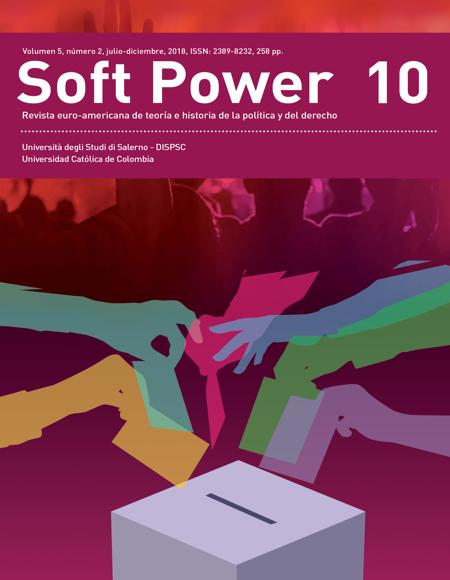Resumen
.

Citas
Bennington, G. (2016). Scatter 1: The Politics of Politics in Foucault, Heidegger and Derrida. New York: Fordham UP.
Cabezas, O. (2013). Postsoberanía: Literatura, política y trabajo. Lanús: Ediciones La Cebra.
Galli, C. (2010). Political Spaces and Global War. Minneapolis: University of Minnesota Press.
Gramsci, A. (1971). Selections from the Prison Notebooks of Antonio Gramsci. Edited and Translated by Quintin Hoare and Geoffrey Nowell-Smith. London: Lawrence & Wishart.
Harvey, D. (2003). The New Imperialism. Oxford: Oxford UP.
Hegel, G.W.F. (1977). Phenomenology of Spirit. Translated by A.V. Miller. Oxford: Oxford UP.
Heidegger, M. (1998). Letter on Humanism. In W. McNeill (Ed) Pathmarks (pp. 239-76). Cambridge: Cambridge UP:
Heidegger, M., (2015). Koivóv: Out of the History of Beyng. In The History of Beyng (pp.149-67). Translated by William McNeill and Jeffrey Powell. Bloomington: Indiana University Press.
Hobbes, T. (1985). Leviathan. Edited by C.B. Macpherson. London: Penguin Classics.
Klein, M. C. (2018, September 14th). “Why the Euro Won’t Replace the Dollar”. Barron’s. https://www.barrons.com/articles/why-the-euro-wont-replace-the-dollar-1536945404.
Marx, K. (1976). Capital: A Critique of Political Economy Volume One. Introduced by Ernest Mandel. Translated by Ben Fowkes. London: Penguin Books.
Moreiras, A. (1999). Tercer espacio: Literatura y duelo en América Latina. Santiago de Chile: LOM Editores.
Moreiras, A. (2001). The Exhaustion of Difference: The Politics of Latin American Cultural Studies. Durham: Duke UP.
Moreiras, A. (2008). Línea de sombra: El no sujeto de lo político. Santiago de Chile: Editorial Palinodia.
Moreiras, A. (2016). Marranismo e inscripción, o el abandono de la conciencia desdichada. Madrid: Escolar y Mayo Editores.
Nancy, J-L. (1993). “The Decision of Existence”. In Birth to Presence (pp. 82-109). Palo Alto: Stanford University Press.
Nancy, J-L. (2007). The Creation of the World or Globalization. Albany: SUNY Press.
Schürmann, R. (2003). Broken Hegemonies. Bloomington: Indiana University Press.
Sloterdijk, P. (2017). The Domestication of Being. In Not Saved: Essays after Heidegger (pp. 89-148). Malden: Polity Press.
Sloterdijk, P. (2017). Rules for the Human Park: A Response to Heidegger’s ‘Letter on Humanism’. In Not Saved: Essays after Heidegger (pp. 193-216). Malden: Polity Press.
Villalobos-Ruminott, S. (2014). Soberanías en suspenso: Imaginación y violencia en América Latina. Lanús: Ediciones La Cebra.







